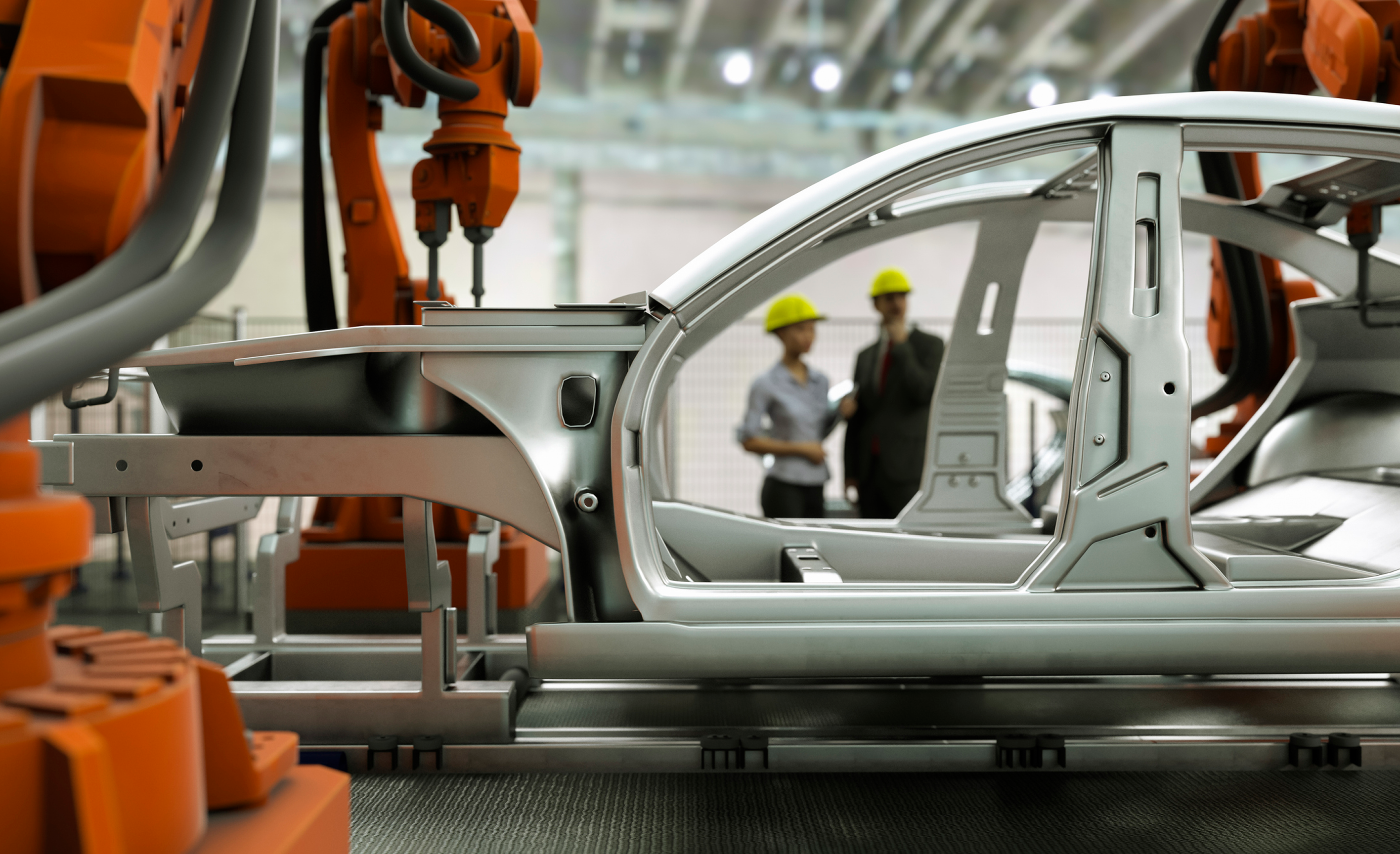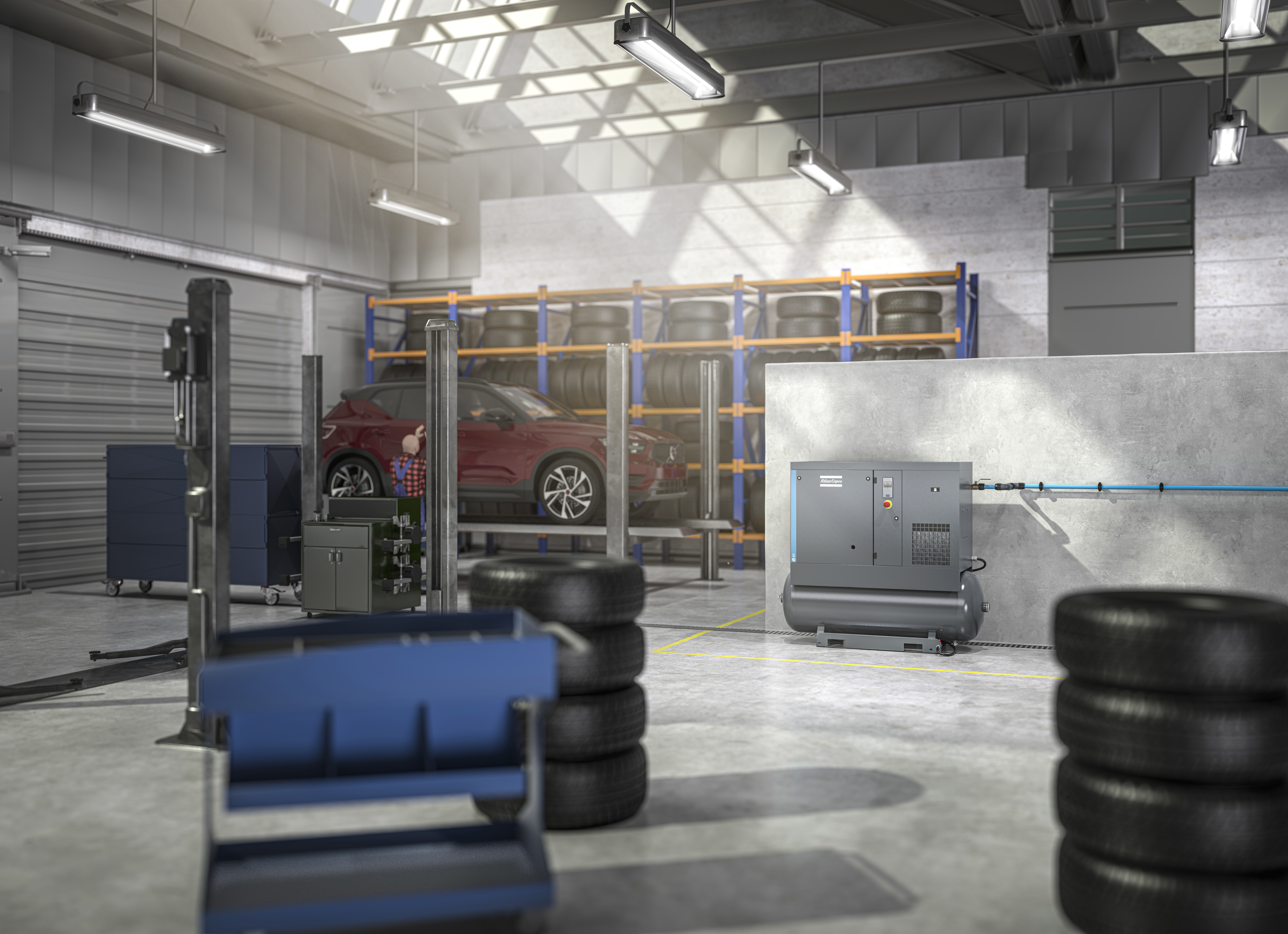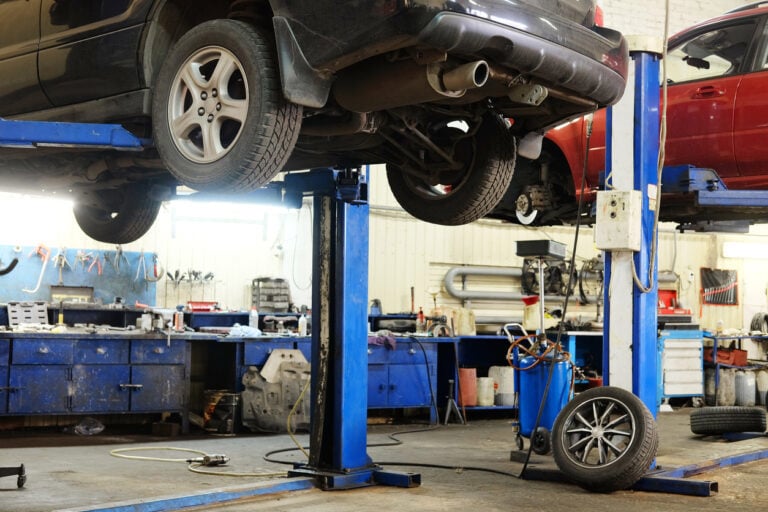
Choosing the right automotive air compressor can be the difference between a smooth-running shop and one facing efficiency challenges. Whether you’re a seasoned mechanic or an automotive shop owner, having a dependable air compressor is essential for tasks like spray painting, tire inflation, and powering air tools. In this guide, we’ll highlight what specifications to look for, compare top models, and help you find an automotive air compressor that fits your needs.
Key Features to Consider in an Automotive Air Compressor
Automotive tasks often require more air volume and pressure than other applications. Selecting a compressor that delivers the right CFM (Cubic Feet Per Minute), PSI (Pounds Per Square Inch), and tank capacity will ensure you have consistent power and air flow to handle tools needed in everyday work.
CFM (Cubic Feet Per Minute)
- Why It Matters: Automotive shops rely on a wide range of tools that need higher CFM. An impact wrench or a sandblaster, for example, can quickly deplete airflow if the compressor's CFM rating isn't high enough.
- How Much Do You Need? Look for a compressor with at least 4-5 CFM for lighter tasks. Professional shops often need 10+ CFM for continuous, heavy-duty work.
PSI (Pounds Per Square Inch)
- Why It Matters: Different tools may require different pressures. While many automotive tools operate around 90-100 PSI, having a compressor that can handle up to 125-150 PSI offers greater flexibility in the amount and types of tools you use.
- How Much Do You Need? Check the specifications of your air tools. If you plan on using multiple tools simultaneously, a higher PSI ensures you won’t lose performance when powering them all at once.
Tank Size
- Why It Matters: The size of your compressor’s tank determines how long you can run tools without the motor kicking in. Bigger tanks provide consistent airflow for extended tasks, like spray painting an entire car body.
- Who Benefits? Larger tanks (60 gallons or more) suit professional automotive shops where consistent airflow is crucial. Smaller tanks (10-20 gallons) are ideal for portability and quick jobs.
Portability and Size
- Why It Matters: Some automotive professionals rely on mobility for their work, whether performing roadside repairs or operating a mobile service, making a heavy, stationary compressor impractical. On the other hand, those with a dedicated garage or business location may not need portability, making a stationary compressor the better choice.
- What to Consider: A compact, wheel-mounted unit is easier to transport to different worksites. A stationary compressor with a larger tank is better suited for permanent, high-demand setups.
For a deeper dive into these specifications, check out our buying guide to learn more about important compressor features.
Rotary Screw vs. Piston Compressors for Automotive Work
Choosing the right air compressor starts with understanding your specific work requirements and CFM capacity needs. Let’s break down the differences between Rotary Screw and Piston Compressors to help you navigate the options:
Rotary Screw Air Compressors: A Top Choice for Automotive Uses

While piston compressors are common, rotary screw air compressors have gained a reputation as the gold standard for demanding automotive work. Here’s why:
- Continuous Operation - Rotary screw compressors can run continuously without the frequent starts and stops of piston compressors. This is crucial in busy automotive shops where air demand is constant.
- High Efficiency - Rotary screw engineering offers a consistent air supply, minimizing pressure drops that can cause fluctuations in tool performance. Their efficient operation often leads to lower energy costs over time.
- Lower Noise Levels - Rotary screw units tend to produce less noise than their piston counterparts, creating a more comfortable work environment, which is especially important in enclosed auto shops.
- Longer Lifespan and Reduced Maintenance - The design of rotary screw compressors experiences less wear and tear compared to piston compressors. This means fewer breakdowns and simpler maintenance. With fewer components to maintain, rotary screw models can offer a longer service life, saving money on repairs and replacements.
- Ideal for Heavy-Duty Tools - Since auto shop tends to run multiple tools at the same time, rotary screw compressors provide the higher CFM required for demanding automotive tasks.
When shopping for Rotary Screw Compressors on AirCompressors.com, turn to trusted brands like Atlas Copco or Quincy Compressor brands, recognized for their robust design and energy-saving technology.
Piston Compressors: A Dependable Option for Automotive

Although rotary screw compressors are growing in popularity, piston compressors remain a steady option for many automotive shops. Here’s why:
- Simplicity and Affordability - Piston compressors usually cost less upfront than comparable rotary screw models, making them an attractive option for smaller shops or budget-conscious buyers. Their simpler construction makes them easier to understand, operate, and service.
- High Pressure Capabilities - Piston compressors often excel at reaching and holding higher PSI levels. This is useful when you need a quick burst of power for tasks like loosening tight lug nuts. Because these compressors are designed for start-stop operation, they’re a great choice for shops where air demands are not constant.
- Wide Availability of Parts and Models - With piston compressors being an industry standard, parts and accessories are widely accessible. Ranging from small portable units to large two-stage industrial models, there’s a piston compressor for nearly every requirement.
- Durability for Light-to-Medium Duty - Cast-iron cylinders and robust components can withstand regular wear and tear, ensuring a lengthy service life. Additionally, routine tasks like changing oil and replacing filters keep these compressors running smoothly without specialized servicing.
- Proven Track Record - Piston compressors have been powering automotive tools for decades, proving their reliability and versatility in garages and shops alike.
If you have fluctuating air demands or prefer a budget-friendly system that’s easy to maintain, piston compressors are a go-to solution. Shop piston compressors on AirCompressors.com.
How to Choose the Right Air Compressor for Your Automotive Needs
While this guide has helped focus your air compressor options, there are additional factors to consider when selecting the right compressor for your automotive needs:
Match the Air Compressor to Your Tasks
Identify the air tools you’ll use most frequently, such as impact wrenches, sanders, or spray guns, and check their required CFM and PSI. If you anticipate expanding your services, opt for a slightly larger compressor to accommodate additional tools.
Budget Considerations
High-quality compressors from brands like Atlas Copco and Quincy Compressor are built to last for years. Investing a bit more upfront in a reliable compressor can help reduce repair costs and minimize downtime over time.
Understand Maintenance Needs for Longevity
Understand the maintenance needed for the compressor you are purchasing and ensure you know how to keep it running smoothly. Just like a car, you need to regularly inspect and change the oil (if applicable), clean or replace the air filters, and drain the tank to remove moisture buildup. You can also consider scheduling periodic maintenance checks from a service professional, especially if your compressor sees heavy daily use.
Choose AirCompressors.com for your Automotive Air Needs
At AirCompressors.com, we understand the unique demands of an air compressor for vehicle maintenance and automotive repair. Our extensive selection of top brands, including Atlas Copco and Quincy Compressor, ensures you’ll find a model well suited for your needs. From portable models for mobile mechanics to large compressors for heavy-duty auto shops, we have you covered.
Need guidance? Contact our team to receive personalized recommendations to help match the right compressor to your tasks and budget. At AirCompressors.com, we do more than just sell compressors, we provide resources, education, and ongoing support for all your compressed air needs.
Browse rotary screw compressors and piston compressors to find the right fit for your automotive shop needs!

